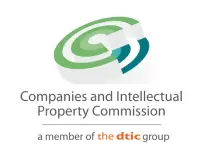Domicilium et Executandi requirement
Commencement of deregistration notification for companies and close corporations
The Companies and Intellectual Property Commission (CIPC) has commenced with the notification in terms of Companies Regulation 40, 2011 via e-mail for companies and close corporations referred for deregistration due to non-compliance with Annual Returns.
Companies and close corporations are advised to confirm the status of their enterprises, and if doing business or will be conducting business in the near future, to comply with filing outstanding Annual Returns and the required Audited Financial Statement (AFS) or Financial Accountability Supplement (FAS) and Compliance Checklist.
Outstanding Annual Returns and the required AFS or FAS including the Compliance Checklist MUST be filed before final deregistration. The estimated period for final deregistration is mid November 2023. The final date for final deregistration will be communicated in due course.
For more information:-
- To confirm the company or close corporation status, go to https://bizportal.gov.za / login / select Services / BizProfile / follow prompts.
- To file Annual Returns, go to https://bizportal.gov.za / login / select Services / Annual Return Filing / follow prompts.
- When making use of BizPortal Service DO NOT deposit funds with CIPC. BizPortal makes use of card payments only.
- For a short video on how to file via BizPortal, go to https://www.cipc.co.za/wp-content/uploads/2023/07/CIPC-AR-Filing-drive_Mobile-480P.mp4
- If you have not received an email reminder to file Annual Returns in the past two years, it means that CIPC does not have your updated contact details. Kindly proceed to file Annual Returns and then update director or member contact details. Go to https://eservices.cipc.co.za / login / select Transact / select Amend Company Director detail (if company) or amend CC member details (if close corporation).
- CIPC offers a free online training course for Directors regarding their statutory obligations in terms of the Companies Act, 2008. If you are interested kindly go to https://www.cipc.co.za/?page_id=10431
- If you have a mandate to file on behalf of a company or close corporation (so called intermediary – not CIPC agent), go to https://annualreturns.cipc.co.za/
For further enquiries, kindly log a ticket via www.cipc.co.za / enquiries.
ICT application software upgrade and maintenance
Dear Customers;
CIPC will be performing a software upgrade and maintenance on its ICT infrastructure environment.
All the CIPC systems and services will be unavailable for the duration of the upgrade and maintenance.
START: Friday, 11 August 2023 – 18h00
END: Monday, 14 August 2023 – 07h00
CIPC apologises for any inconvenience caused and hope that you will find this in order.
CIPC Self Service Centre Cape Town will be closed to the public from 14:00 starting 4 August 2023
Media release: Companies and intellectual property commission (CIPC) approves SAMPRA distribution plan for 2022/3
The Companies and Intellectual Property Commission (CIPC) is pleased to announce its approval to distribute R195 992 520 million by the South African Music Performance Rights Association (SAMPRA), for music royalties for the 2022/23 financial year. SAMPRA is one of the collecting societies that play a crucial role in administering the collection and distribution of music royalties. The collecting societies license, collect and distribute music royalties to performing artists and owners of sound recordings and are regulated by the CIPC in terms of the Copyright Act 1977, the Performers Protection Act 1967 and the Regulations on Collecting Societies as promulgated in June 2006.
The CIPC approves the royalty distribution plans submitted by the collecting societies, which are based on data of usage obtained from the users of sound recordings. SAMPRA anticipates to complete the distribution of the approved amount in the next few months.
The approved amount of R195 992 502 million is undoubtedly evidence that there is value in protecting copyright work through the Copyright system, and CIPC prides itself on being a regulating partner in the value chain of the needle-time revenue stream for the performing artists and owners of sound recordings in music.
ENDS
Enquiries: Charmaine Motloung
Position: Senior Manager: Strategic Communications
E- Mail: cmotloung@cipc.co.za
Mobile: 082 373 0107
Website: www.cipc.co.za
